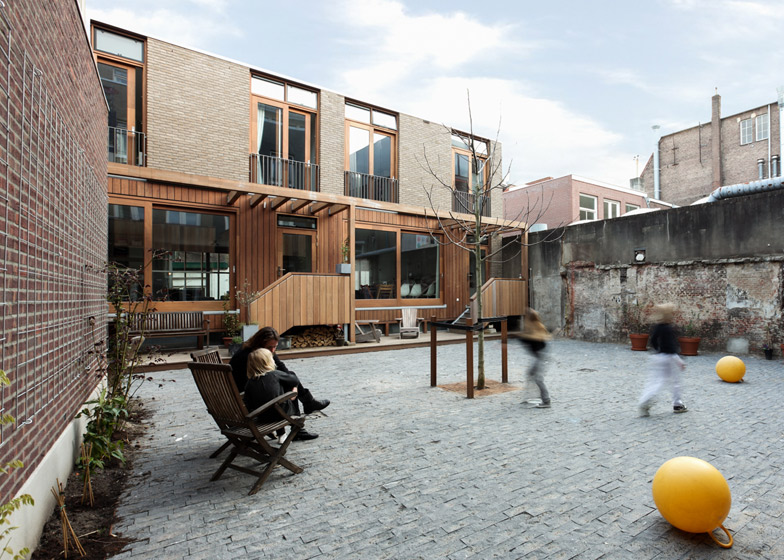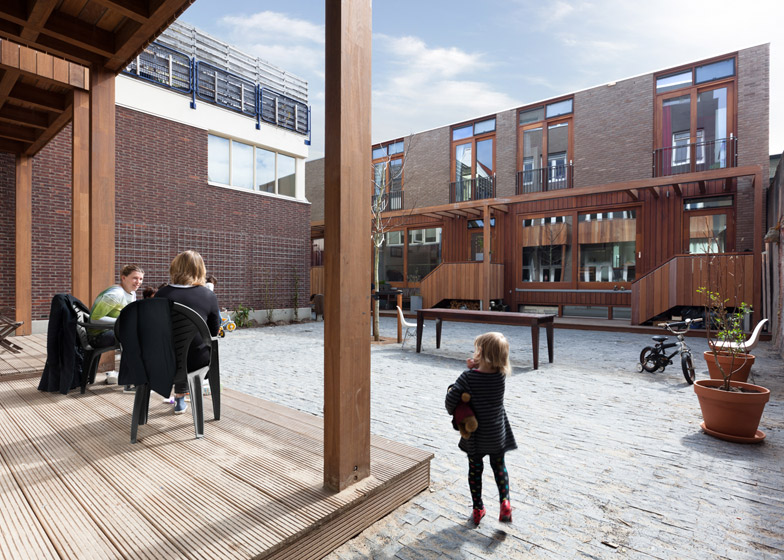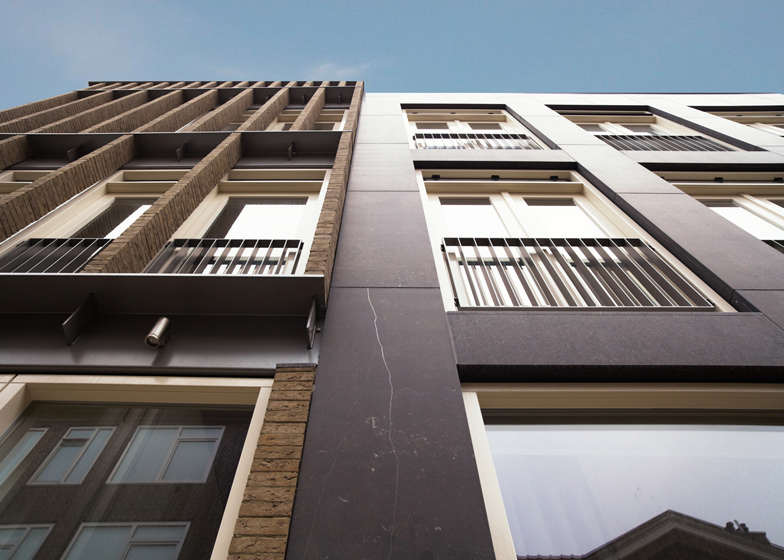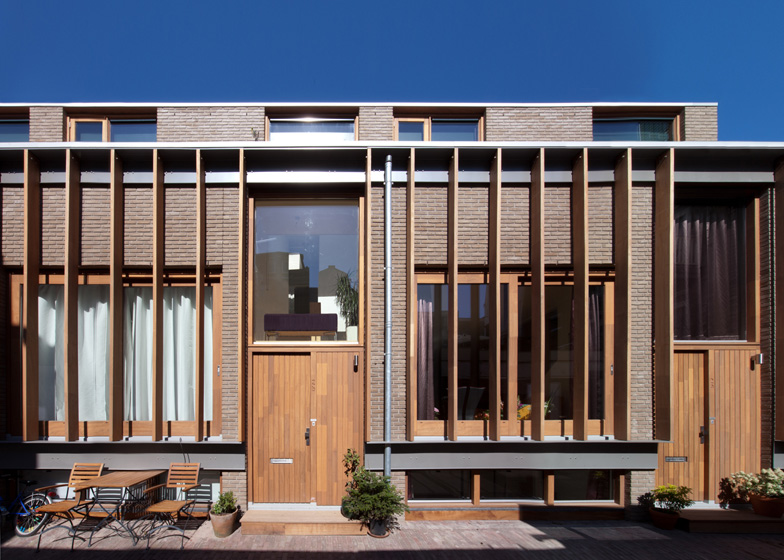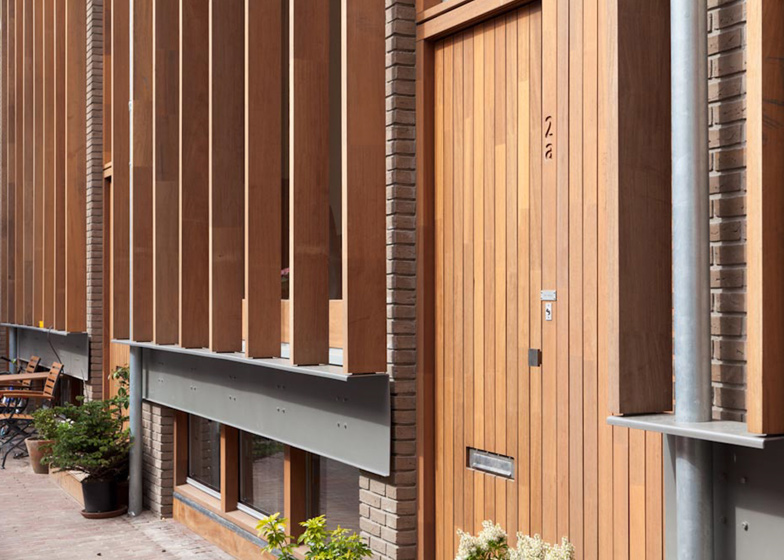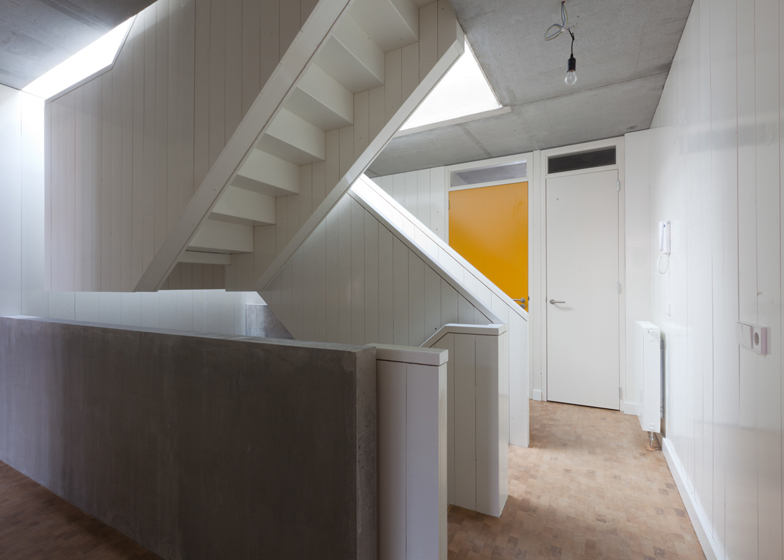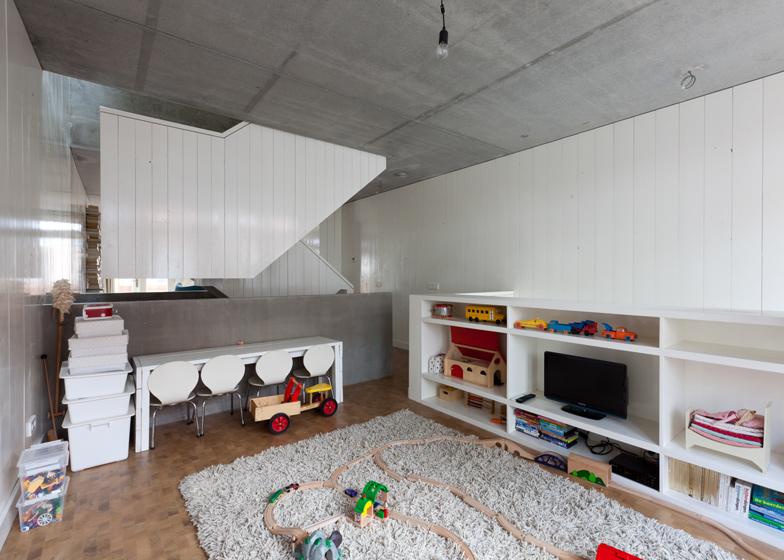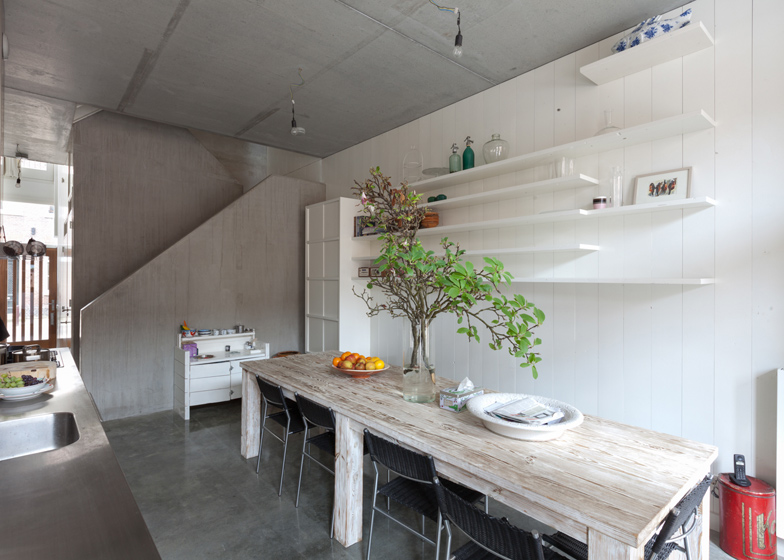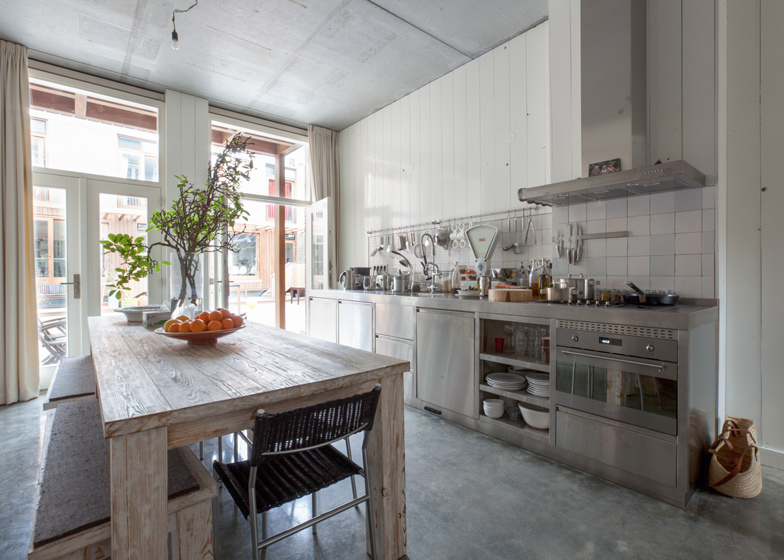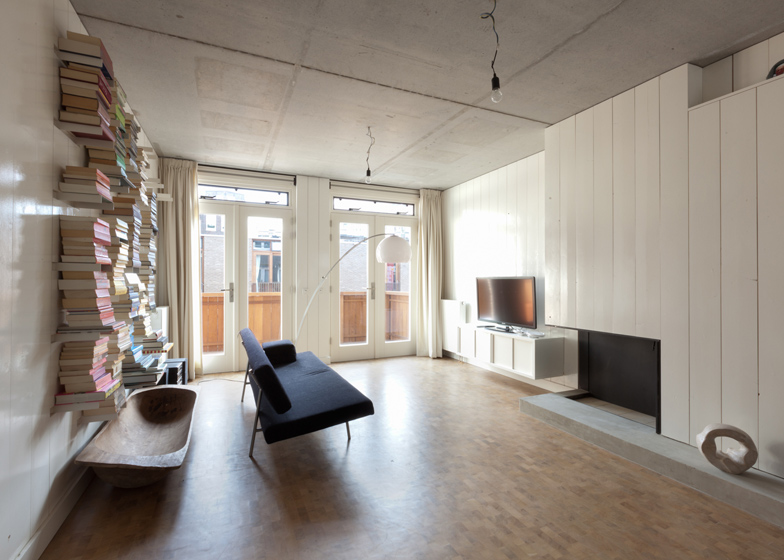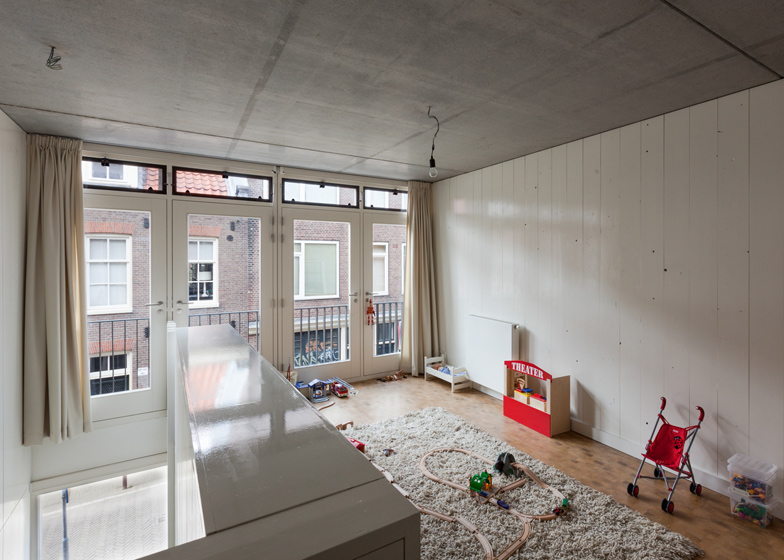Dutch architect Bastiaan Jongerius was commissioned by six families to design this group of houses around a communal courtyard in Amsterdam (+ slideshow).
The buildings were constructed on a plot of land in the city's Jordaan district, which the city council had simply handed over due to contaminated soil and a number of buildings yet to be demolished.
Bastiaan Jongerius Architecten decided to retain and renovate two buildings on Elandsstraat to the north, creating a four-storey townhouse and a pair of maisonettes behind the rough brick and blue stone facades.
The architects then constructed a row of three new three-storey houses facing south onto Lijnbaansstraat, each with earth-coloured brick walls and wooden fenestration details.
A narrow alleyway leads from Elandsstraat into the L-shaped courtyard at the centre of the site, which is shared by all six residences.
Five homes have french windows that open out to wooden patio decks around the edge of the courtyard, while wooden balconies overlook it from both sides.
Interiors feature exposed concrete ceilings, white-painted timber walls and wooden staircases.
Another Dutch housing development completed earlier this year featured two rows of brick houses sandwiched between a pair of canals in the town of Den Helder. See more houses in the Netherlands »
Photography is by Milad Pallesh.
Here's some text from Bastiaan Jongerius Architecten:
Six courtyard houses in Amsterdam
In 2004, three couples with children who were looking for suitable housing in the city centre decided to join forces in order to commission their own construction project. They set their sights on a plot of land between Elandsstraat and Lijnbaansstraat.
In order to avoid open tendering, the city council sold the plot complete with contaminated soil and buildings that had yet to be demolished. There was space for six housing units, enabling a further three families to join the project, and the six households then formed a 'collective private commissioning body'.
The land was divided into six condominium units, each of which also included a one sixth portion of the communal garden courtyard. The design process was an intensive trajectory of endless discussions, structuring responsibilities and monitoring costs.
Architect and resident Bastiaan Jongerius designed a plan in which the edges of the plot are built on, giving rise to a central private courtyard.
Two buildings on Elandsstraat have been carefully incorporated in the existing facade frontage. The dwelling at number 133 is characterised by an abundant use of glass and wood, while the adjacent building, which houses an upstairs and a ground-floor dwelling (numbers 135 and 137), has a bluestone facade.
Behind the door, above which are the names of all the children who live in the complex, is an alleyway that leads to the garden courtyard.
Three pavilion-like dwellings, which are accessed via wooden steps, are situated here. The front doors and facade gardens of these dwellings are on Lijnbaansstraat.
The housing scheme has injected new life into this narrow cul-de-sac.

